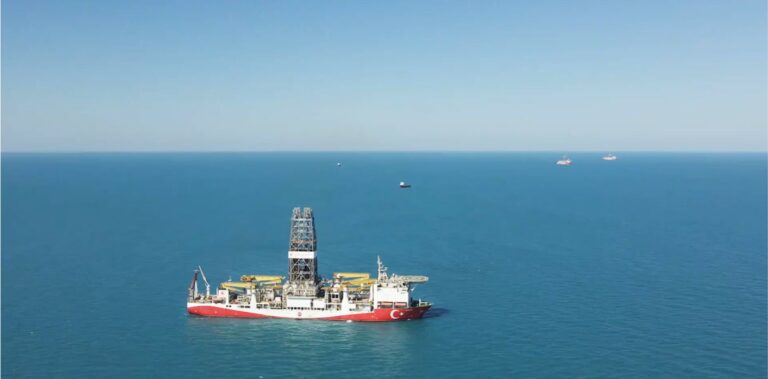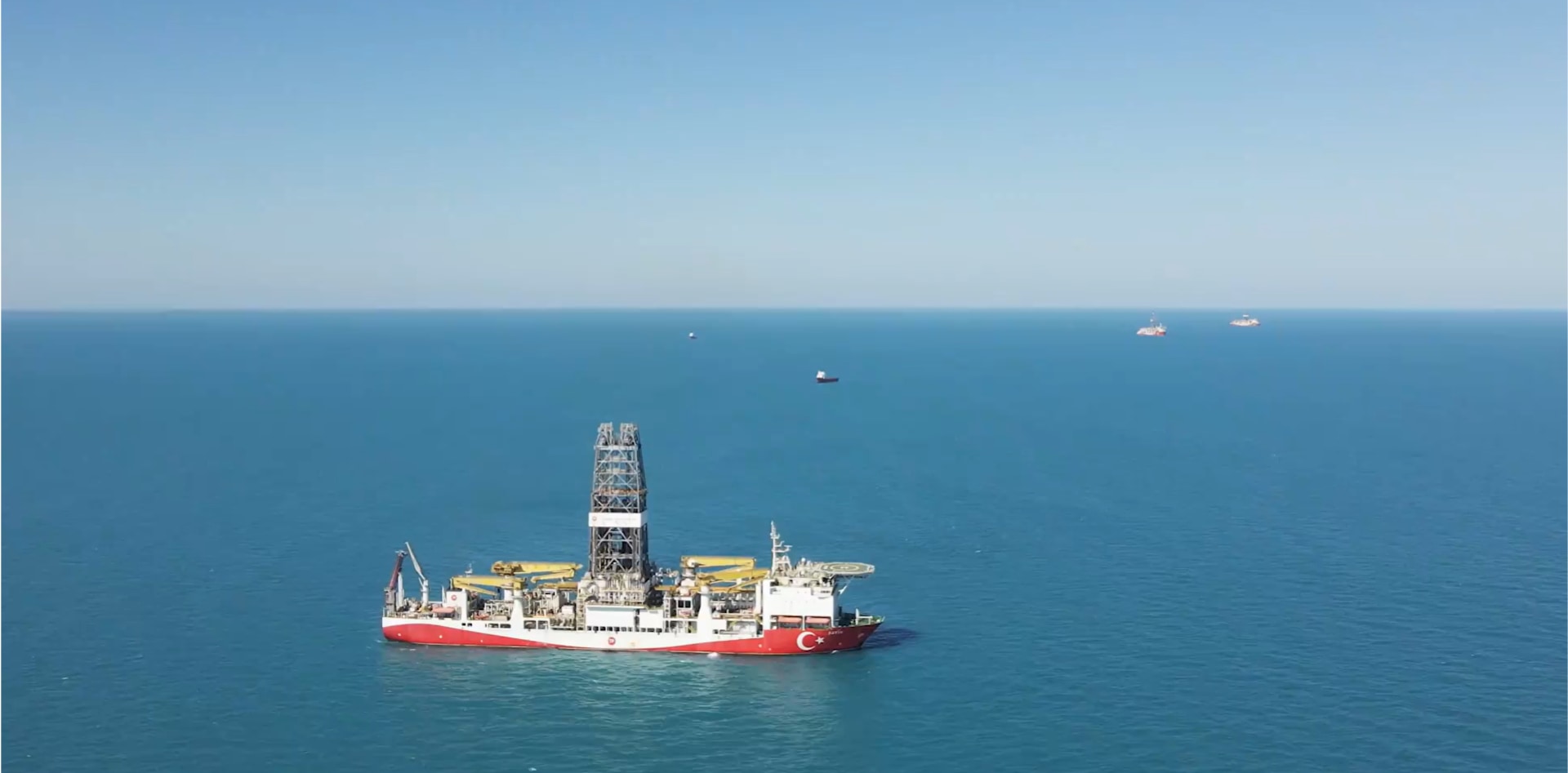Türkiye’s new energy efficiency roadmap envisions $20 billion investment by 2030
On a mission to diminish its reliance on energy imports, Türkiye is pulling out all the stops to fortify its energy security. The country’s latest move brings its brand-new energy efficiency roadmap and action plan to light, unveiling a $20 billion investment, which is expected to not only open doors to new job opportunities but also enable energy savings worth $46 billion by 2040. This comes shortly after Türkiye disclosed plans to ramp up its underground natural gas storage capacity and become one of the top five global players in the rare earth elements (REE) arena.

Türkiye recently confirmed that its lack of energy security concerns stemmed from the opening of its first underground natural gas storage facility and the start-up of the Sakarya giant gas project in the Black Sea, which enabled it to strengthen its energy independence. In December 2022, Türkiye’s natural gas reserves in the Black Sea rose to 710 bcm. The country has also been making inroads in taking advantage of energy diversification opportunities from different sources, especially LNG, as 50% of its natural gas needs are met from liquid natural gas.
Türkiye is taking several steps to bolster its natural gas storage capacity and make its Silivri facility more efficient while slashing greenhouse gas emissions with the help of renewables. In addition, the country’s national oil and gas giant, Türkiye Petrolleri A.O. (TPAO), is putting the wheels into motion to boost production to 10 million cubic meters of natural gas per day in the first development phase at Sakarya while the utilization of a floating platform is anticipated to help bring the output to 20 million cubic meters.
The second development phase is expected to enable 40 million cubic meters of natural gas in the coming years as other wells in the Balck Sea go into operation. After full capacity is reached, Sakarya is expected to meet around 30% of Türkiye’s current natural gas needs.
Alparslan Bayraktar, Türkiye’s Minister of Energy and Natural Resources, highlighted: “We produce 4 million cubic meters of natural gas every day at the Sakarya gas field in the Black Sea and supply it to the grid. We meet the natural gas needs of one and a half million households from here. Of course, we will not stop there.
“We will increase daily production first to 10 million cubic meters and then to 40 million cubic meters. We are writing a success story in the production of natural gas, the widespread use of it and its delivery to homes and workplaces.”
During the first day of the Energy Efficiency Week, which aims to raise awareness about energy efficiency at a global level with various events held all over the world between January 8-14, Türkiye’s Minister of Energy and Natural Resources revealed Turkey’s 2030 Energy Efficiency Strategy and Action Plan while calling on all citizens to use energy efficiently.
While pointing out that the implementation of the action plan would reduce energy consumption by 16% and contribute to 100 million tons of emission reduction by 2030, Bayraktar outlined: “We are launching a new energy efficiency movement to create a sustainable and environmentally friendly energy policy in line with our country’s 2053 net zero climate targets, to strengthen energy supply security and to reduce foreign dependency.”
Türkiye’s Minister of Energy and Natural Resources explains that energy efficiency has become a sector that receives more than $600 billion of investment annually with annual employment growth reaching 1 million. In Bayraktar’s view, this sector is “the most important part” of the solution to energy crises and net zero emission targets.
While the gross domestic product increased by 67% in a decade and Türkiye’s population climbed up by 13%, energy consumption has also risen with the population growth and economy. Over the past ten years, Bayraktar claims that energy demand spiked by 34% while emissions went up by 26%, thus, the jump in energy demand fell behind economic growth.
“Our President announced our country’s 2053 net zero emission target with the Green Development Revolution two years ago. The supporter of net zero transformation on the supply side and the complement on the demand side are energy efficiency practices. We believe that energy efficiency is possible without reducing production or reducing the quality of the service provided and without negatively affecting physical comfort and social welfare,” elaborated Türkiye’s Minister of Energy and Natural Resources.
Furthermore, Bayraktar underlines that the targets in Türkiye’s first National Energy Efficiency Action Plan, covering the period 2017-2023, have been achieved. Thanks to the investment of $8.5 billion during the implementation period of the action plan, an emission reduction of around 70 million tons was reached while 45,000 of new green jobs were created. To build on this further, the country will implement its Energy Efficiency 2030 Strategy and the 2nd National Energy Efficiency Action Plan, which will be put into action between 2024-2030.
“With the implementation of our action plan, we will reduce our energy consumption by 16% by 2030 and contribute to the reduction of 100 million tons of emissions. In order to achieve these goals, we will invest $20 billion in energy efficiency together with the public and private sectors by 2030. Thus, we will create new job opportunities by supporting companies operating in the field of energy efficiency, and thanks to these investments, we will save energy worth $46 billion by 2040,” underscored Türkiye’s Minister of Energy and Natural Resources.
Türkiye is planning to provide the energy and charging infrastructure necessary to have more than 1 million electric vehicles on the roads by 2030. According to Bayraktar, energy efficiency needs to be adopted by all segments of the country to alleviate the burden of energy costs on the economy, protect the environment, and combat climate change. He invited international financial institutions to work together and support Türkiye’s goals within the framework of its action plan to build “a greener future.”
Cooperation as cornerstone of rare earth elements development
While the eyes of the energy world turned to the Minerals of the Future Forum – held in Riyadh, Saudi Arabia – Bayraktar made a call to the international community regarding the reserve in Eskişehir Beylikova to turn Türkiye into one of the top five countries that can produce rare earth elements (REE), which can propel the energy transition agenda forward. Currently, the country is making preparations to establish an industrial facility in Eskişehir – where the world’s second-largest REE reserve in a single deposit is said to be located – to refine 570,000 tons of REE per year.
“When we look at our energy transformation story and the critical mineral potential in Türkiye, we see that our country’s mineral diversity is high. We have invested a lot in mining in the last 20 years. Our mineral exports are also increasing steadily. In 2020, we established a Rare Earth Minerals Institute to examine the potential of our country in this field, which is very important for our economy,” explained Bayraktar.
During his speech, Türkiye’s Minister of Energy and Natural Resources stated that all countries were trying to reduce their emissions, making it necessary to widely implement many different clean energy technologies, which use critical minerals such as copper, lithium, nickel, cobalt, and rare earth elements. With this at the forefront, he emphasized: “We are ready to cooperate with all countries, especially Africa, West and Central Asia. Likewise, we are ready to cooperate with experts while sharing our experiences and good practices.”
Bayraktar further noted: “We think that a few things are required for a successful energy transition. First of all, policies should be continuous and certain, and therefore should not change with governments. It should also give the right messages to relevant sectors and financial institutions by developing a set of rules and regulations along with sensitive and rational policies. Thus, we should be able to attract financing to this area.
“The second issue is the accessibility and economy of critical minerals. Unfortunately, today many critical minerals are not produced in sufficient quantities to meet the rapidly increasing use of solar panels, wind turbines, and electric vehicles. Many minerals come from a small number of suppliers. When we look at cobalt, lithium and rare earth elements, we see that the three largest producers control more than three-quarters of the global supply.
“Sometimes we even see that a single country produces approximately half of global production. This geographical concentration, combined with complex supply chains, extends the time required for new mine production, decreases resource quality in some places, and of course social and environmental impacts, raise concerns about the reliability and sustainability of mineral supply.”
Therefore, Türkiye’s Minister of Energy and Natural Resources underlines the need for strong international and regional cooperation. Aside from including the call to transition away from all fossil fuels in the final text, the COP28 UN climate talks also brought home the key role critical minerals would play in the energy transformation ecosystem and fight against climate change.
With energy security and sustainability in mind, Türkiye is determined to spare no effort in a bid to reach its medium-term goal of producing 60 GW of renewable energy by 2035, thus, it plans to install 5 GW of solar and wind power capacity per year over the next 12 years. Plans are also afoot to build two more nuclear plants in the country.

ADVERTISE ON OFFSHORE ENERGY
𝐃𝐨 𝐲𝐨𝐮 𝐰𝐚𝐧𝐭 𝐭𝐨 𝐠𝐫𝐚𝐛 𝐭𝐡𝐞 𝐚𝐭𝐭𝐞𝐧𝐭𝐢𝐨𝐧 𝐨𝐟 𝐲𝐨𝐮𝐫 𝐭𝐚𝐫𝐠𝐞𝐭 𝐚𝐮𝐝𝐢𝐞𝐧𝐜𝐞 𝐢𝐧 𝐨𝐧𝐞 𝐦𝐨𝐯𝐞? 𝐋𝐨𝐨𝐤 𝐧𝐨 𝐟𝐮𝐫𝐭𝐡𝐞𝐫 𝐭𝐡𝐚𝐧 𝐎𝐟𝐟𝐬𝐡𝐨𝐫𝐞 𝐄𝐧𝐞𝐫𝐠𝐲! 𝐎𝐮𝐫 𝐜𝐨𝐧𝐭𝐞𝐧𝐭 𝐢𝐬 𝐫𝐞𝐚𝐝 𝐛𝐲 𝐭𝐡𝐨𝐮𝐬𝐚𝐧𝐝𝐬 𝐨𝐟 𝐩𝐫𝐨𝐟𝐞𝐬𝐬𝐢𝐨𝐧𝐚𝐥𝐬 𝐞𝐧𝐠𝐚𝐠𝐞𝐝 𝐢𝐧 𝐨𝐢𝐥 & 𝐠𝐚𝐬, 𝐦𝐚𝐫𝐢𝐭𝐢𝐦𝐞, 𝐨𝐟𝐟𝐬𝐡𝐨𝐫𝐞 𝐰𝐢𝐧𝐝, 𝐠𝐫𝐞𝐞𝐧 𝐦𝐚𝐫𝐢𝐧𝐞, 𝐡𝐲𝐝𝐫𝐨𝐠𝐞𝐧, 𝐬𝐮𝐛𝐬𝐞𝐚, 𝐦𝐚𝐫𝐢𝐧𝐞 𝐞𝐧𝐞𝐫𝐠𝐲, 𝐚𝐥𝐭𝐞𝐫𝐧𝐚𝐭𝐢𝐯𝐞 𝐟𝐮𝐞𝐥𝐬, 𝐬𝐡𝐢𝐩𝐩𝐢𝐧𝐠, 𝐚𝐧𝐝 𝐨𝐭𝐡𝐞𝐫 𝐢𝐧𝐝𝐮𝐬𝐭𝐫𝐢𝐞𝐬 𝐨𝐧 𝐚 𝐝𝐚𝐢𝐥𝐲 𝐛𝐚𝐬𝐢𝐬.
Follow Offshore Energy’s Fossil Energy market on social media channels:



